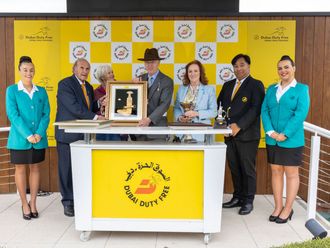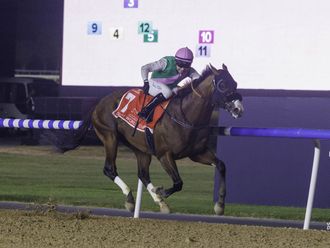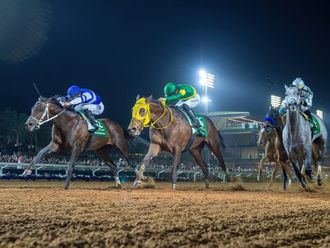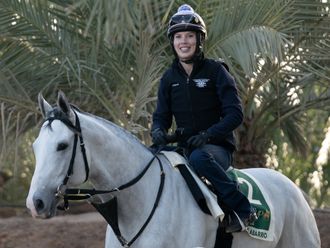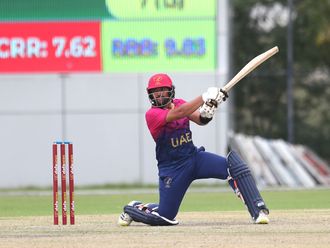Abu Dhabi: The three sessions of deliberations on the opening day of the World Arabian Horse Conference in Warsaw saw the majority of the 400-plus delegates agree to some of the key issues concerning Purebred Arabian racing.
In the first session on ‘Breeding’, a poll showed that delegates were in favour of embryo transfer with a limit of foals from one mare in a year, while in the second session on ‘Racing and Training’ the majority were of the view that Purebred Arabian racing require more than one handicapper in their respective countries.
The Conference is being held under the auspices of the HH Shaikh Mansour Bin Zayed Al Nahyan Global Arabian Horse Flat Racing Festival.
Noted racing commentator Derek Thompson moderated the session on breeding with crucial inputs coming from Michelle Morgan (USA), France’s Catherine Labarthe, Poland’s Dr. Mark Trela, Manuela Daverio (Germany) and Dr. Andrew Dalglish along with UAE breeder-owners Khalid Al Naboudah and Khalid Al Rahoomi.
“HH Shaikh Mansoor Bin Zayed Al Nahyan, Deputy Prime Minister of the UAE and Minister of Presidential Affairs, has introduced a new incentive which remunerates the winning breeder of all Wathba Stud Farm Cup races in UAE. That is an encouraging factor,” said Khalid Al Rahmoomi.
Dr Andrew Dalglish said: “Using frozen semen is cheaper and gives us the opportunity to increase the number of horses we produce, and can lead to better breeding.”
Once again it was the topic of embryo transfer in Arabian horse breeding that drew varied responses but the poll at the end favoured embryo transfer with a limit of foals from one mare in a year.
The Racing and Training session was moderated by Pat Buckley (Ireland), with Yasir Mabrook (UAE), Faysal Rahmani (UAE), Lyn Ashby (US), Erwan Charpy (UAE), Gillian Duffield (UK), Michel Romanawski (Poland), Ibrahim Al Hadrami (Oman) and Eric Lemartinel (FR) on the panel.
The conditions for races in countries like the UAE which had more Arabian horses was highlighted while the role of the handicappers and the need for more than one handicapper was also raised. Some felt the ballot system should be adopted in the Arabian handicapping procedure while some expressed their view that even if ten handicappers were utilised, owners and trainers will still have issues!
The speakers also felt that in racing two-year-olds in Arabians was not a good idea unlike in thoroughbreds. They said that some Arabians are still ‘babies’ at four.
In the final session on ‘Weight Loss Control’ for jockeys Lara Sawaya, Executive Director of the Shaikh Mansour Festival announced that lady jockeys will be assisted by Kai Schcirmann, the Director of Apprentice School in Germany.
Since both the HH Shaikha Fatima Bint Mubarak Apprentice and Ladies World Championship series come under one umbrella, we request Schcirmann, who is now looking after the welfare of the Apprentice jockeys, to extend his services to the lady jockeys too.”
Dr Jamal Hoot, who is working with jockeys in Oman and also in the UAE, said the right energies with food items for diet was necessary.
“Good weight with good heath for jockeys is what we are working on and we prepare a diet that is decided after knowing what is good and what is bad to a particular individual.”
Dr Hoot demonstrated a muscle response test with the session’s moderator Gary Capwell, who has also evinced keen interest in a Festival-funded research by the John Moore University in Liverpool. The test was to find out which items a person is allergic to for when he gets in contact with that substance his muscle power drops and vice versa.”


